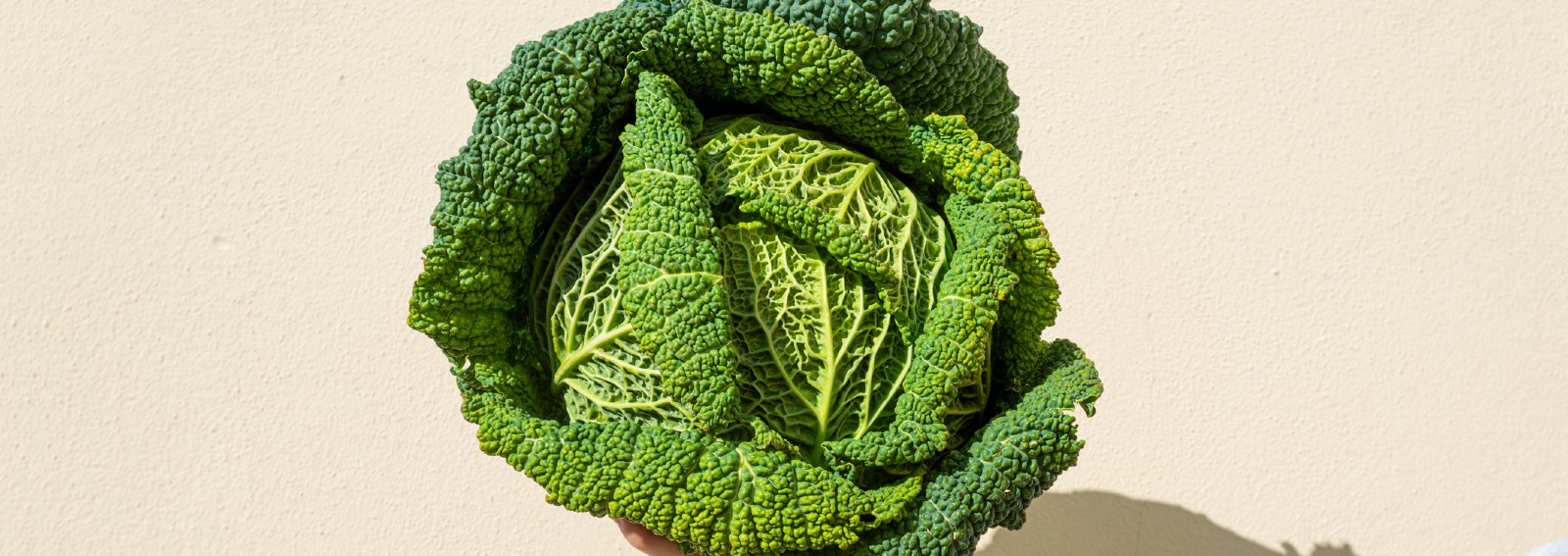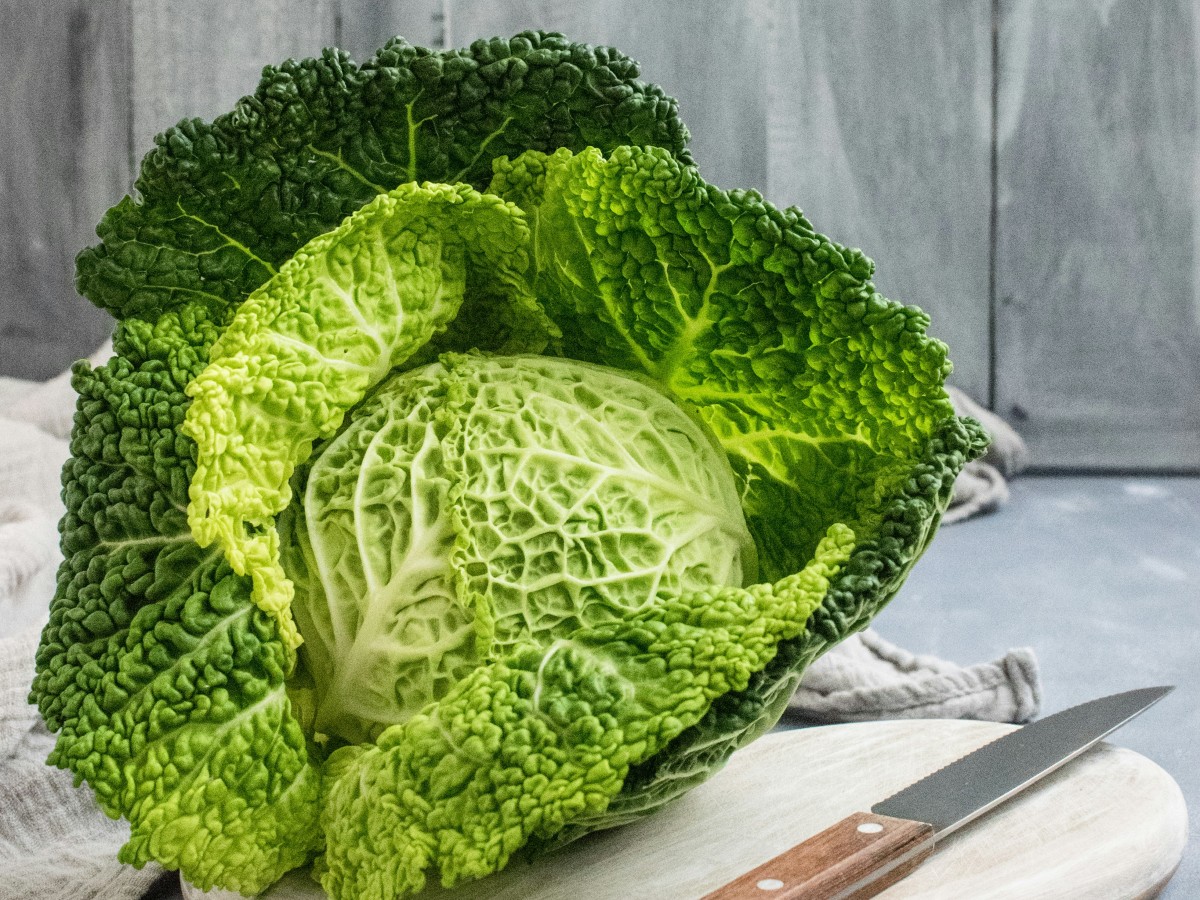

Too often overlooked in our daily diet, cabbage is a highly nutritious food capable of bringing numerous benefits to our body.
Although it may closely resemble lettuce, cabbage (or curly kale) is a leafy green vegetable belonging to the Brassicaceae family.
Thanks to its nutritional profile and its versatility in the kitchen, this vegetable is a healthy and tasty addition to a balanced diet. Here’s why you should eat it more often.

1. Has an Excellent Nutritional Profile
Although cabbage has a low calorie content, it has an impressive nutritional profile.
It’s an excellent source of fiber, which promotes digestion and contributes to satiety. It’s also rich in vitamins (especially vitamin C, K, and A) and minerals, including potassium and calcium.
Cabbage also has a high content of vitamin B6 and folic acid, both essential for many important processes in the body, including energy metabolism and normal functioning of the nervous system.
The presence of antioxidants such as flavonoids and phenolic compounds make it an ideal option for those looking to follow a healthy diet.
2. Helps Control Inflammation
Cabbage is a nutrient-rich food with anti-inflammatory properties that can help control inflammation in the body.
This vegetable contains antioxidants such as flavonoids and phenolic compounds that counteract cellular damage caused by free radicals, reducing inflammation. Additionally, it’s a significant source of vitamin K, which has been shown to play an important role in inflammation regulation.
Studies suggest that a diet rich in leafy green vegetables like cabbage is associated with lower levels of inflammatory markers in the blood, reducing the risk of chronic diseases related to inflammation, such as heart disease and type 2 diabetes.
Why Vitamin K Matters, Especially for Women
3. Helps Improve Digestion
Being rich in fiber, cabbage is an excellent ally for intestinal health.
Specifically, the insoluble fibers it contains help maintain a healthy digestive system by adding bulk to stools and promoting regular bowel movements.
Additionally, cabbage contains natural digestive enzymes that aid in the breakdown of nutrients, improving the efficiency of the digestive process.

4. Eating Cabbage Helps Lower Cholesterol Levels
Cabbage has a high content of soluble fibers, such as pectin, which help reduce levels of bad cholesterol (LDL) in the blood. Fibers bind to cholesterol in the digestive tract, preventing its absorption and promoting elimination through feces.
Furthermore, cabbage is low in saturated fats and rich in phytonutrients and antioxidants, which can contribute to improving the overall lipid profile.
5. Is Good for Heart Health
By promoting the reduction of LDL cholesterol in the blood and thus reducing the buildup of plaque in the arteries, cabbage has proven to be an excellent ally for heart health.
Moreover, being rich in potassium, this vegetable helps regulate blood pressure, reducing the risk of hypertension and heart disease.
Finally, according to some research, antioxidants such as vitamin C and flavonoids, abundant in cabbage, protect heart cells from oxidative damage, thus helping to maintain a healthy cardiovascular system, reducing the risk of heart events and stroke.
6. Cabbage is Perfect for Dieting
The versatility of cabbage makes it easy to incorporate into many recipes, adding substance and flavor to first and second courses without compromising nutritional balance.
Indeed, it is a perfect vegetable for a healthy diet.
Being mainly composed of water, cabbage is a hydrating food that contributes to maintaining fluid balance in the body. It’s also rich in essential vitamins and minerals, providing nutritional support without adding excess calories.
Finally, it’s rich in fiber, which promotes satiety and intestinal regularity, helping to control appetite and maintain a healthy weight.
This article first appeared on Grazia.it













